


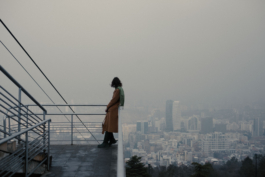
Over a million people may have already left Russia since the war of aggression on Ukraine, reports the Konrad Adenauer Foundation. The reasons are manifold: many are afraid of being drafted or of the ever worsening repressions, others simply cannot bear to live in a country at war anymore.
A particularly popular emigration country is the former Soviet republic of Georgia. The Caucasus country is one of the few where Russians can live visa-free for a longer period of time. The relationship between Georgians and Russians is difficult to the point of hostility: since so many Russians came to Georgia, rents have risen, in some cases exorbitantly, which has caused resentment. At the same time, solidarity with Ukraine is enormous: In the capital Tbilisi, blue and yellow flags fly on every corner, and the walls of buildings are covered with anti-Putin graffiti. Since the 2008 Caucasus War, Russia has de facto occupied South Ossetia and Abkhazia, and thus around 20 percent of Georgia's territory.
Together with @timfabianschaefer I portrayed five young Russians who could no longer stand it in their home country. Polina, Ksenija, Artur, Daniel and Agatha have in common that they are all activists and from their exile, they form an active civil society that is engaged in very different ways against the war and for their new homeland.
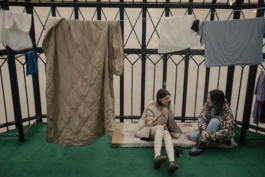
The FSB domestic intelligence service threatened and observed Agatha, 22, because her father is involved in the opposition. "On February 24, my father called me. It was immediately clear that we could not stay in Moscow." The fashion design student is involved in a Georgian volunteer group on Telegram, for example, in environmental protection.
Artur, 23, from Kazakhstan, opened a vegan bakery in Russia, which was anarchically organized and known as a meeting place for regime critics. "One day I got a call from the police, who thought I was an extremist. I would be expelled from Russia. If I didn't leave the country voluntarily, I would be put in deportation custody." In Tbilisi, he and fellow activists founded the vegan restaurant "Shpana," which even serves a vegan version of the classic Georgian grilled cheese bread, Khachapuri. "I can't imagine life without activism. We want to spread the word about vegan cuisine in Georgia and provide a space for left-wing groups. We donate all tips to Ukraine."
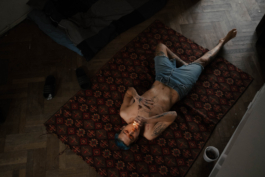
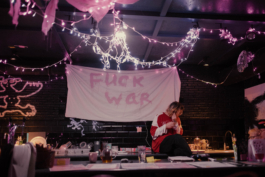
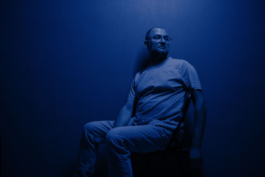
Journalist Danil, 45, hasn't been able to stand it in St. Petersburg since the war - even if he had to leave his wife and children behind to do it. "I wanted to get out of Russia right away." In Tbilisi, he works for "Paper Kartuli," a local bilingual online magazine. "Georgians and Russians often have little to do with each other. We want to get them out of their bubbles." In January, he also opened a bar in the basement of the editorial office, where mainly opposition journalists from Russia exchange ideas.
Theater maker Polina, 29, came to Tbilisi from Saint Petersburg with a special luggage: a small puppet theater. She also brought that to Ukrainian orphans from Kherson who fled Ukraine. "In the beginning, I was totally scared because I didn't know what to expect. I knew the children's background and the fact that I am from Russia was not a problem at all. We created a little play with the puppets. Everything was full of love and hope and playfulness."
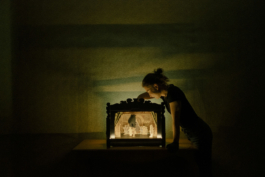
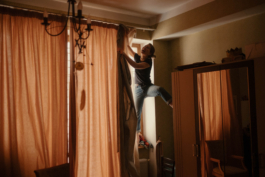
Coming together through literature is Anna's big goal. The 30-year-old organizes a literature café in her adopted home of Tbilisi. The visitors talk to each other about selected novels and appropriate questions, and reflect on their own experiences. It's mainly Russians under 30 who come every weekend, but Anna has long been looking for Georgian translations of the novels to appeal to Georgians. "Totally exciting discussions always arise, about love, friendship or the relationship between the sexes. And we collect donations with which we support Ukraine." At each meeting, the equivalent of about 70 to 130 euros is collected. "That's not that much, but at least it's regular support."
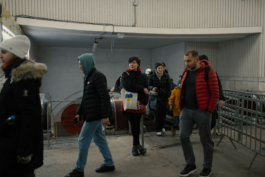
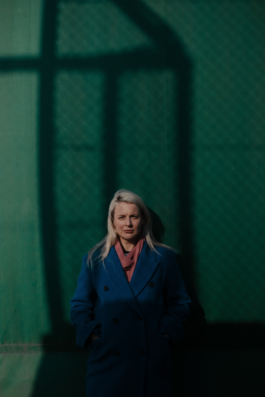
Kseniya, 35, "When I read about the start of the war on Telegram, I was paralyzed. I knew that everything would be different now." Since fall, she has been involved with "Motskhaleba," an NGO that helps Ukrainian refugees in Georgia. "In Russia, I was active with an association that supports political prisoners. I despise Russian propaganda - but what can I do? Help people who need help."